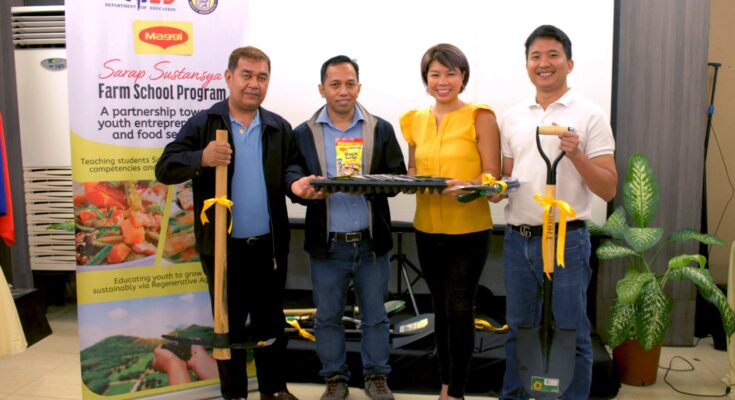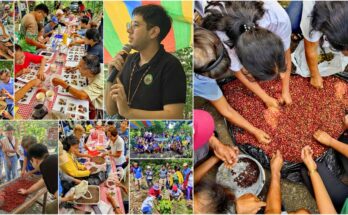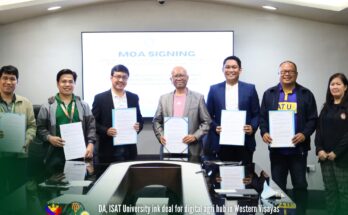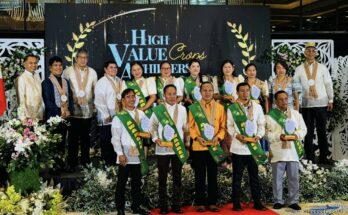The Department of Education – Western Visayas (DepEd Region 6) and MAGGI, a food and flavoring brand of Nestlé Philippines, recently signed a Memorandum of Agreement (MOA) to jointly undertake the Sarap Sustansya Farm School Program. Under this partnership, MAGGI has committed to provide DepEd Farm School teachers with training and learning materials on Sarap-Sustansya cooking, regenerative farming, and entrepreneurial skills. MAGGI will also provide essential farming tools and implements that will assist faculty and students in propagating their school farms and vegetable gardens.
“This partnership with MAGGI is a timely initiative that will help us equip our students with new skills that are essential at this time when food insecurity and nutritional deficiencies continue to impact Filipinos’ quality of life,” said Ramir B. Uytico, Regional Director, DepEd Western Visayas. “I believe this collaboration will help bring to life the DepEd farm schools’ goal of producing the next generation of Filipino food production champions and leaders in agricultural innovation.”
The Western Visayas region was the first to establish Farm Schools in 2021. Now on its second schoolyear, the DepEd Farm Schools are regarded as Gulayan sa Paaralan Show Windows, Seed Capital and Agricultural Learning Hubs of public schools nationwide. The Sarap Sustansya Farm School Program with MAGGI is a pioneering initiative to enable DepEd to elevate the quality of basic education and provide best practices for future Farm Schools.
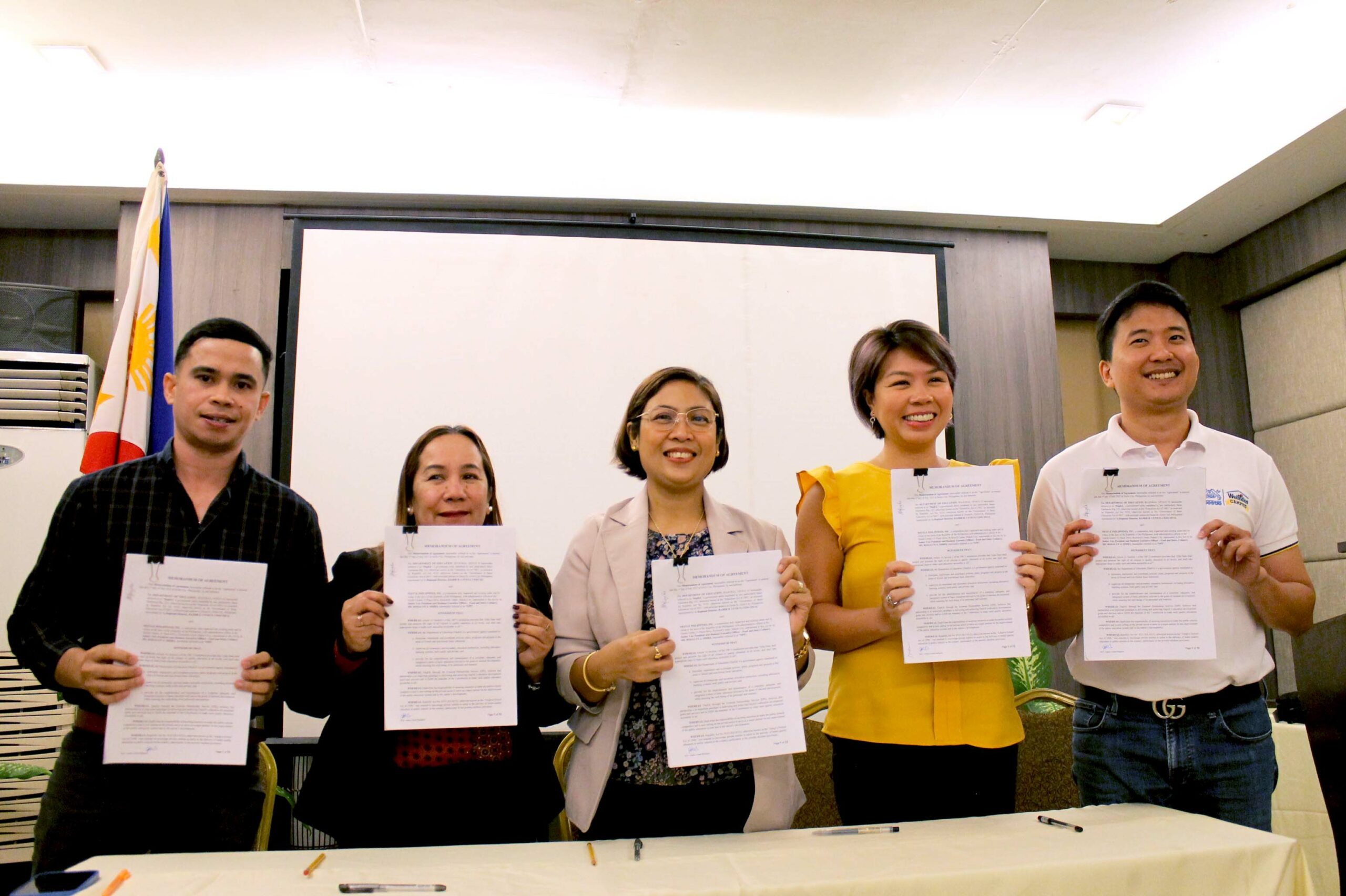
“We are thrilled that the MAGGI Sarap Sustansya advocacy is very much aligned with DepEd Farm School’s thrust to promote food sufficiency and good eating habits, while cultivating an entrepreneurial mindset among the youth,” said Rosalyn Simba, Senior Vice President and Business Executive Officer – Food and Dairy Culinary, Nestlé Philippines. “MAGGI is committed to work with partners like DepEd in achieving a food-secure future, where families and communities have better access to fresh ingredients, and benefit from delicious meals that are vegetable-rich and affordable.”
Through the Sarap Sustansya Farm School Program, MAGGI is adopting a three-prong approach to supporting DepEd Region 6 in its goals of promoting agricultural productivity, food security and rural development.
Cooking with Sarap Sustansya: Teaching students a basic yet valuable life skill
While cooking may be viewed as a basic skill, the ability to cook with taste, nutrition and affordability in mind requires more than just instinct. Using learning resources from the MAGGI Sarap Sustansya Kusinaskwela modules, students can be adept at preparing tasty and healthy meals on a modest budget.
DepEd teachers will receive training and learning tools on Sarap Sustansya cooking, so they can instruct students how to determine adequate portions based on the Pinggang Pinoy recommendations for a balanced plate, and how to plan a menu using a diverse range of ingredients for a more nutritionally-complete diet.
The basic cookery module also intends to promote good eating habits among students, since the meals they will learn to cook will include the same vegetables that students grow and harvest in their Farm School. An expanding body of research shows that youth who plant vegetables are more likely to eat them; and this experience aims to promote the consumption of more vegetables daily, as students learn to prepare a wide variety of plant-based dishes.
Growing edible gardens more sustainably
Learning content on more sustainable ways to grow vegetables will be imparted by field experts from Nestlé Philippines. Students will be introduced to concepts in Regenerative Agriculture, an approach to food and farming systems that focuses on ensuring the health of the soil and waterways, biodiversity, and increasing resilience to climate change. Practices such as composting, multi-cropping or intercropping, and the use of cover crops are some of the techniques that students will learn in operating sustainable farms that not only provides a source of food, but also a possible source of income.
Inspiring youth to pursue business opportunities in the culinary field
An introduction to agri-entrepreneurship will also be included in the MAGGI Farm School Program, with MAGGI culinary experts providing lectures to farm school faculty on how to establish a small eatery. In the Philippines, the ‘carinderia’ is an indispensable part of Filipinos’ daily lives and can be a lucrative business model for those with a talent for cooking affordable meals. Students will benefit from skills-building in budgeting, profit-and-loss, and basic food safety among many other business concepts to inspire students to embark on a turo-turo or carinderia venture, which may also serve as a ready-market for their home-grown vegetables.
At the end of the schoolyear, the Sarap Sustansya Farm School Program will culminate with a Cooking Competition where students will create dishes using vegetables they planted and harvested from their Farm Schools, and give participants a deeper appreciation for the farm-to-fork experience.
